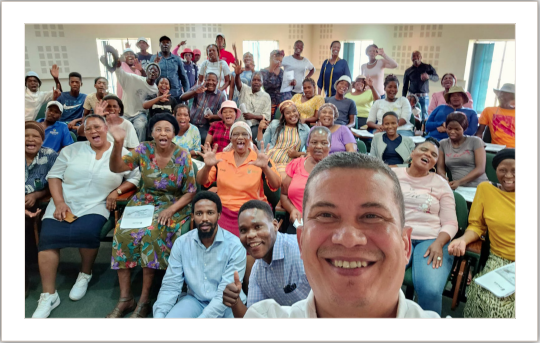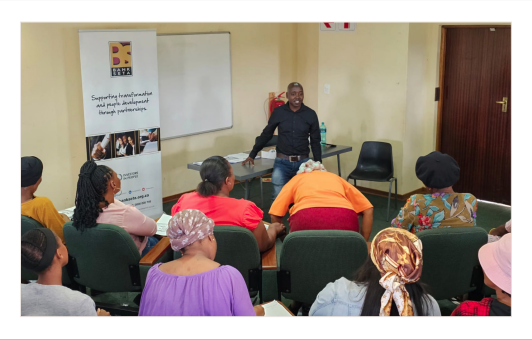More than 5000 rural entrepreneurs have been empowered in the last three years through a
partnership between the BANKSETA and the South African Local Government Association (SALGA).
The newly-trained entrepreneurs come from all nine provinces and at least 39 districts. The skills
they have been given over the three-day training course range from new venture formation to
planning for growth.
They range across all ages, from youngsters of 15 years to seasoned veterans, and from formally
registered businesses to informal ventures as well as those that are still in the planning stages.
The sectors in which the businesses are involved included beading, arts and crafts, farming, construction, hospitality, business consulting, car washing, education (day care centres), catering,
importing, and general supplies.

Zanoxolo Futwa, who manages the project on behalf of SALGA, says SALGA’s mandate is to be a pillar providing support to municipalities across the country by delivering tools and systems to help
them deliver on their mandates.
SALGA’s research has found that fewer people living in rural municipalities have the capability to join
the mainstream economy than in urban areas. As a result, they are less able to pay for the services
provided by the municipalities. A gap therefore exists between the capacity of rural people to generate the income needed to fund the municipalities to enable them in turn to provide adequate services.
SALGA therefore identified the need to train rural entrepreneurs to start up and run businesses efficiently and partnered with a number of strategic partners to provide this training. The key focus is on developing capacity and support systems to enable growth in the revenue base of municipalities. With such growth, not only services can be provided, but municipalities can borrow against their balance sheets.
Zanoxolo says: “If you’re unemployed, you can’t generate revenue to pay for services, the result of
which is a reduction in the social cohesion of the country.”
He paid tribute to the contribution that BANKSETA is making to the project and expressed SALGA’s delight that the BANKSETA was able to listen to the call and see value in the partnership. One of BANKSETA’s reasons for being involved is to provide rural business people with the skills and competencies to have informed conversations with fnancial offcials.
The seven modules of the course are:
- New venture formation;
- Ethics and governance;
- Financial management;
- Marketing;
- Doing business with corporates and the private
sector; - Growth planning, execution, measurement; and
- Managing people and operations.
The first year of the project was implemented by Boago Learning Solutions, while the second and
third years have been implemented by Tshokomo Business Consultancy. In addition to the training, extremely useful information has been gathered, which is providing substantial data to be used in studies to understand and inform rural development policy.
In addition, traditional leaders have been drawn into the partnership, which has benefited relationships
with these important leaders in the country. The next step is a national dialogue so that the three spheres of government – national, provincial and local – can have a conversation about rural development that will result in a national rural development strategy to be submitted to the Cabinet.

Although the training has been rolled out in all provinces, emphasis was given to provinces that
are predominantly rural, in particular KwaZulu-Natal, Mpumalanga, Eastern Cape and Limpopo.
Eastern Cape, for example, received 25% of the training.
In many cases, the training proved so popular that courses were oversubscribed, with up to three times the number of people expected actually attending. Although the courses were conducted in English, facilitators were on hand at all times to assist delegates’ understanding, as well as to explain complex financial aspects to them where needed.

